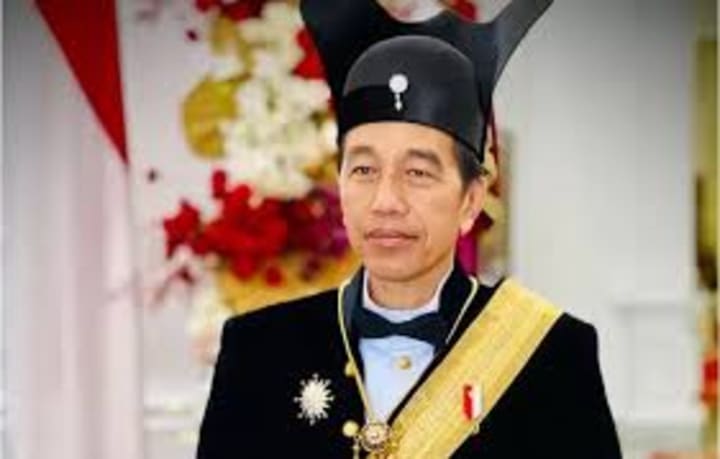Father and father-in-law dynasties
Historical Context

Father and Father-in-Law Dynasties in Indonesia
Indonesia, a nation rich in cultural diversity and political history, is also a land where familial ties often shape political and economic landscapes. The interplay between family relationships and power is particularly evident in the emergence of father and father-in-law dynasties. These familial networks wield significant influence, intertwining political, economic, and social realms in ways that profoundly affect the country's governance and development. This essay delves into the dynamics of these dynasties, exploring their origins, impact, and implications for Indonesian democracy.
Historical Context
The foundation of father and father-in-law dynasties in Indonesia can be traced back to the nation's post-colonial history. Following independence in 1945, Indonesia's political landscape was characterized by the emergence of strongman leaders and military influence. These leaders, often bolstered by familial and patronage networks, established the groundwork for dynastic politics. Over time, economic liberalization and the concentration of wealth further entrenched these familial ties, creating powerful oligarchic structures.
The Suharto Family and Cendana Clan
One of the most prominent examples of a father-led dynasty is the Suharto family. Suharto, who ruled Indonesia with an iron fist from 1967 to 1998, used his position to amass significant wealth and influence for his family, collectively known as the Cendana clan. Suharto's children, including Tommy Suharto and Tutut Suharto, inherited not only vast business empires but also political clout. Tommy Suharto's involvement in politics, despite his criminal conviction, highlights the enduring power of the Suharto name.
The Cendana clan's influence extends beyond direct political engagement. Through strategic marriages and business alliances, the family has maintained its status and power. For instance, Suharto's daughter, Siti Hardiyanti Rukmana (Tutut), married a prominent businessman, further consolidating the family's economic and political networks. These alliances exemplify how father and father-in-law relationships can fortify dynastic power.
The Megawati Sukarnoputri Dynasty
The Sukarno family, led by Megawati Sukarnoputri, exemplifies a dynastic continuity rooted in Indonesia's founding leadership. Sukarno, Indonesia's first president, left a legacy that Megawati, his daughter, has adeptly leveraged. Serving as president from 2001 to 2004, Megawati continues to influence Indonesian politics through her leadership of the Indonesian Democratic Party of Struggle (PDI-P).
Megawati's influence is further perpetuated through her children. Her daughter, Puan Maharani, currently serves as the Speaker of the House of Representatives, demonstrating the dynastic succession within the Sukarno family. The strategic marriages within this dynasty, such as Puan's marriage to Hapsoro Sukmonohadi, a businessman, highlight the intertwining of political and economic interests facilitated by familial ties.
The Yudhoyono Dynasty
Susilo Bambang Yudhoyono (SBY), who served as Indonesia's president from 2004 to 2014, has also established a political dynasty through his family. SBY's sons, Agus Harimurti Yudhoyono (AHY) and Edhie Baskoro Yudhoyono (Ibas), are prominent figures in Indonesian politics. AHY, in particular, has taken significant steps to continue his father's political legacy by leading the Democratic Party.
The Yudhoyono family's political influence is augmented by strategic marital alliances. AHY's wife, Annisa Pohan, comes from a family with deep military and political connections, reinforcing the family's socio-political network. Similarly, Ibas's marriage to Aliya Rajasa, the daughter of former Coordinating Minister for the Economy Hatta Rajasa, underscores the role of marital ties in consolidating dynastic power.

The Widodo and Mulyani Families
President Joko Widodo (Jokowi) represents a contemporary example of father and father-in-law dynasties in Indonesia. Jokowi's rise to power was initially seen as a departure from traditional oligarchic politics due to his humble background. However, his family's increasing involvement in politics suggests the formation of a new political dynasty.
Jokowi's son, Gibran Rakabuming Raka, was elected mayor of Solo, while his son-in-law, Bobby Nasution, became the mayor of Medan. These political successes are often attributed to Jokowi's influence and popularity, raising concerns about the perpetuation of dynastic politics. The alliances formed through marriages within Jokowi's family further illustrate how father and father-in-law relationships can bolster political and economic power.
Impact on Indonesian Democracy
The dominance of father and father-in-law dynasties in Indonesia poses significant challenges to the country's democratic processes. These dynasties often prioritize familial and economic interests over public welfare, leading to corruption, nepotism, and unequal distribution of resources. The concentration of power within a few families undermines democratic principles, limiting political competition and innovation.
Moreover, the intertwining of political and economic power through familial networks exacerbates socio-economic disparities. Policies are often tailored to benefit oligarchic interests, hindering inclusive economic growth and perpetuating inequality. The control over media and information by these dynasties further manipulates public opinion, stifling dissent and reducing transparency.
Efforts to Address Dynastic Influence
Despite these challenges, there are efforts to counter the influence of father and father-in-law dynasties in Indonesia. Civil society organizations, independent media, and anti-corruption agencies play crucial roles in promoting transparency and accountability. The Corruption Eradication Commission (KPK) has been pivotal in investigating and prosecuting corruption cases involving political dynasties, although its effectiveness is often hampered by political interference.
Grassroots movements and independent candidates are also emerging as alternative voices in the political arena. These movements advocate for greater political participation and challenge the dominance of established dynasties. The rise of digital platforms provides a space for mobilization and public engagement, fostering a more inclusive political discourse.
Conclusion
Father and father-in-law dynasties in Indonesia represent a significant force in the nation's political and economic landscape. Their deep-rooted influence poses challenges to democratic governance and socio-economic equality. However, the resilience of Indonesian civil society and ongoing efforts to promote transparency and inclusivity offer hope for a more equitable and democratic future. While the battle against dynastic dominance is far from over, the growing demand for accountability and reform provides a path toward a more just Indonesia.
About the Creator
Moharif Yulianto
a freelance writer and thesis preparation in his country, youtube content creator, facebook
Enjoyed the story? Support the Creator.
Subscribe for free to receive all their stories in your feed. You could also pledge your support or give them a one-off tip, letting them know you appreciate their work.






Comments
There are no comments for this story
Be the first to respond and start the conversation.